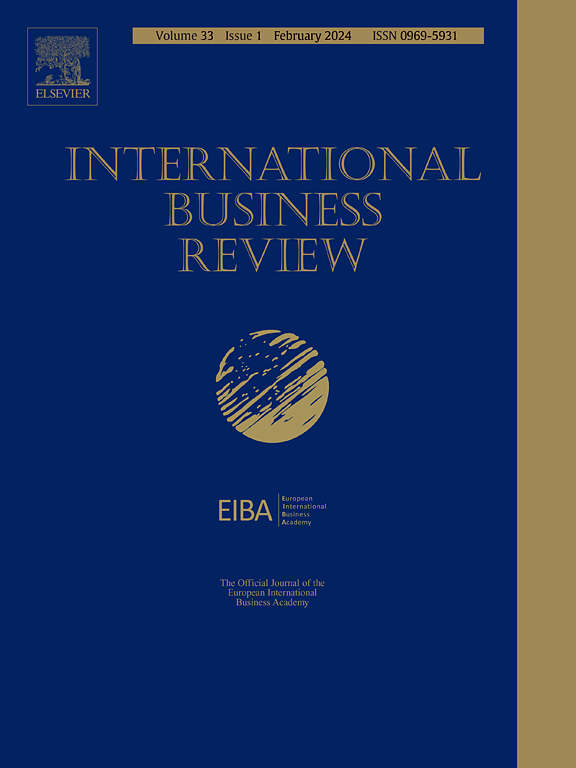The myths of successful expatriation: Does higher emotional intelligence lead to better cultural intelligence?
IF 6.1
1区 管理学
Q1 BUSINESS
引用次数: 0
Abstract
Why superior ability sometimes leads to expatriation failure? Multinational corporations are facing the selection dilemma that expatriates are equipped with the strongest capability, but they still underperform. To address the puzzle, we explored the nonlinear relationship between emotional intelligence and cultural intelligence, and further examined its effects on expatriation outcomes. Drawing from cognitive-appraisal theory, results from a two-wave survey of 405 expatriates revealed an inverted U-shaped relationship between emotional intelligence and motivational cultural intelligence, and a positive relationship between emotional intelligence and behavioral cultural intelligence. Specifically, high levels of emotional intelligence can exert a detrimental effect on the development of motivational cultural intelligence, while facilitating behavioral cultural intelligence. These effects further impact expatriation outcomes. In addition, perceived cultural distance is found to moderate these relationships. The findings challenge the conventional assumption that cross-cultural ability is positively and linearly related to performance. This study contributes to the expatriation literature by unveiling the intriguing myth: the strongest ability does not always equate to the best fit. These insights offer valuable guidance for multinational corporations in expatriate selection and management practices.
成功移居海外的神话:高情商会带来更好的文化智商吗?
为什么出众的能力有时会导致外派失败?跨国公司正面临着外派人员能力最强,但却表现不佳的选择困境。为了解决这个难题,我们探讨了情绪智力和文化智力之间的非线性关系,并进一步研究了其对外派结果的影响。根据认知-评价理论,对405名外籍人士的两波调查结果表明,情绪智力与动机文化智力呈倒u型关系,情绪智力与行为文化智力呈正相关关系。具体来说,高水平的情绪智力会对动机文化智力的发展产生不利影响,而促进行为文化智力的发展。这些影响进一步影响了外派结果。此外,感知到的文化距离也会调节这些关系。研究结果挑战了传统的假设,即跨文化能力与绩效呈正线性关系。这项研究揭示了一个有趣的神话:最强的能力并不总是等同于最适合的。这些见解为跨国公司选择和管理外派人员提供了有价值的指导。
本文章由计算机程序翻译,如有差异,请以英文原文为准。
求助全文
约1分钟内获得全文
求助全文
来源期刊

International Business Review
BUSINESS-
CiteScore
14.10
自引率
6.90%
发文量
95
审稿时长
62 days
期刊介绍:
The International Business Review (IBR) stands as a premier international journal within the realm of international business and proudly serves as the official publication of the European International Business Academy (EIBA). This esteemed journal publishes original and insightful papers addressing the theory and practice of international business, encompassing a broad spectrum of topics such as firms' internationalization strategies, cross-border management of operations, and comparative studies of business environments across different countries. In essence, IBR is dedicated to disseminating research that informs the international operations of firms, whether they are SMEs or large MNEs, and guides the actions of policymakers in both home and host countries. The journal warmly welcomes conceptual papers, empirical studies, and review articles, fostering contributions from various disciplines including strategy, finance, management, marketing, economics, HRM, and organizational studies. IBR embraces methodological diversity, with equal openness to papers utilizing quantitative, qualitative, or mixed-method approaches.
 求助内容:
求助内容: 应助结果提醒方式:
应助结果提醒方式:


